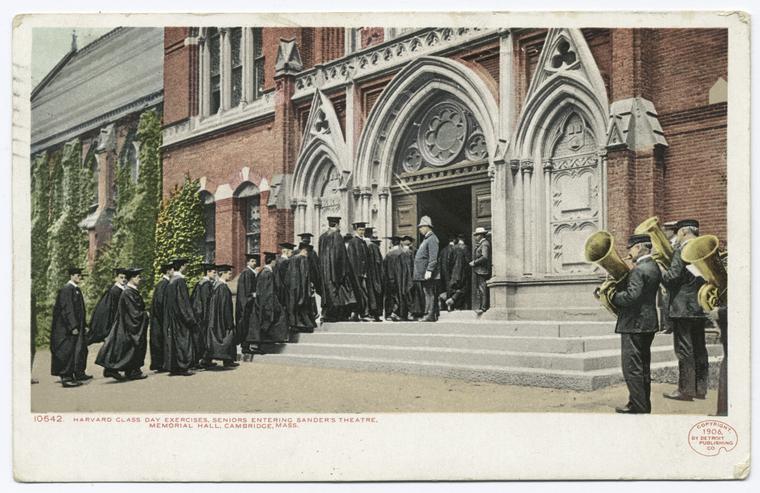Career Services
Education and Employment: Online Diploma Mills
In an environment of globalization, economic volatility and rapid advancement of technologies, the American world of work is evolving with an upward spiral of academic requirements and qualifications. In preparing for the 21st century workplace, an increasing number of students are enrolling in both public and private higher education institutions. According to the U.S. Department of Labor, Bureau of Labor Statistics, education pays.
The U.S. higher education industry is growing at a tremendous rate especially with distance learning and online professional studies for students of all ages. Some higher education institutions provide an education with a solid intellectual grounding to meet the needs of the nation's workforce. However, some educational institutions, especially online, are actually diploma mills that offer degrees of deception.

The following information on online diploma mills is from the Federal Trade Commission Consumer Alert, USA.gov.
Diploma Mills: Degrees of Deception
Are you ever tempted by an ad claiming you can "earn a college degree based on life experience"? Don't be, say attorneys for the Federal Trade Commission (FTC), America's consumer protection agency. Chances are good that the ad is for a "diploma mill," a company that offers "degrees" or certificates for a flat fee, requires little course work, if any, and awards degrees based solely on life experience.
Most employers and educational institutions consider it lying if you claim academic credentials that you didn't earn through actual course work, Federal officials say it's risky behavior. If you use a so-called "degree" from a diploma mill to apply for a job or promotion, you risk not getting hired, getting fired, and in some cases, prosecution.
Diploma mills may claim to be "accredited." Colleges and universities accredited by legitimate organizations undergo a rigorous review of the quality of their educational programs. Although many diploma mills claim to be "accredited," their accreditation is from a bogus, but official-sounding agency that they created. You can use the Internet to check if a school is accredited by a legitimate organization at the database of accredited academic institutions posted by the U.S. Department of education at www.ope.ed.gov/accrediation or at the council for Higher Education Accreditation database at www.chea.org/search. (There are a few legitimate institutions that have not pursued accreditation.)
Look out for sound-alikes. Some diploma mills take on names that are very similar to well-known colleges or universities; a "dot edu" Web address is no guarantees of legitimacy, either. Keep in mind that some diploma mills use credit-sounding foreign names. Researching the legitimacy of a foreign school can be a challenge, but is clearly worth the time. If you're having a tough time checking out a particular school, call the registrar of a local college or university and ask if it would accept transfer credits from the school you are considering.
So how can you tell the institution you're thinking about is legitimate? Here are some tell-tale signs of a diploma mill:
- No studies, No Exams. Get a Degree for Your Experience. Diploma mills grant degrees for "work or life experience" alone . Accredited colleges may give a few credits for specific experience pertinent to a degree program, but not an entire degree.
- No Attendance. Legitimate colleges or universities, including online schools, require substantial course work.
- Flat Fee. Many diploma mills charge on a per-degree basis. Legitimate colleges charge by the credit course, or semester, not a flat fee for an entire degree.
- No Waiting. Operations that guarantee a degree in a few days, weeks, or even months aren't legitimate. If an advertisement promises that you can earn a degree very quickly, it's probably a diploma mill.
- Click Here To Order Now! Some diploma mills push themselves through aggressive sales tactics.
Accredited colleges don't use a spam or high-pressure telemarketing to market themselves. Some diploma mills also advertise in newspapers, magazines, and on the web. - Advertising Through Spam or Pop-Ups. If the school caught your attention through an unsolicited email or pop-up advertisement, it may be a diploma mill. Legitimate institutions, including distance learning programs, won't advertise through spam or pop-ups.
For more information on education and employment, please visit Job Search Central online or in person at 188 Madison Avenue and 34th Street.
Read E-Books with SimplyE
 With your library card, it's easier than ever to choose from more than 300,000 e-books on SimplyE, The New York Public Library's free e-reader app. Gain access to digital resources for all ages, including e-books, audiobooks, databases, and more.
With your library card, it's easier than ever to choose from more than 300,000 e-books on SimplyE, The New York Public Library's free e-reader app. Gain access to digital resources for all ages, including e-books, audiobooks, databases, and more.
If you don’t have an NYPL library card, New York State residents can apply for a digital card online or through SimplyE (available on the App Store or Google Play).
Need more help? Read our guide to using SimplyE.
Comments
I disagree
Submitted by wendybear1 (not verified) on December 5, 2012 - 5:02pm